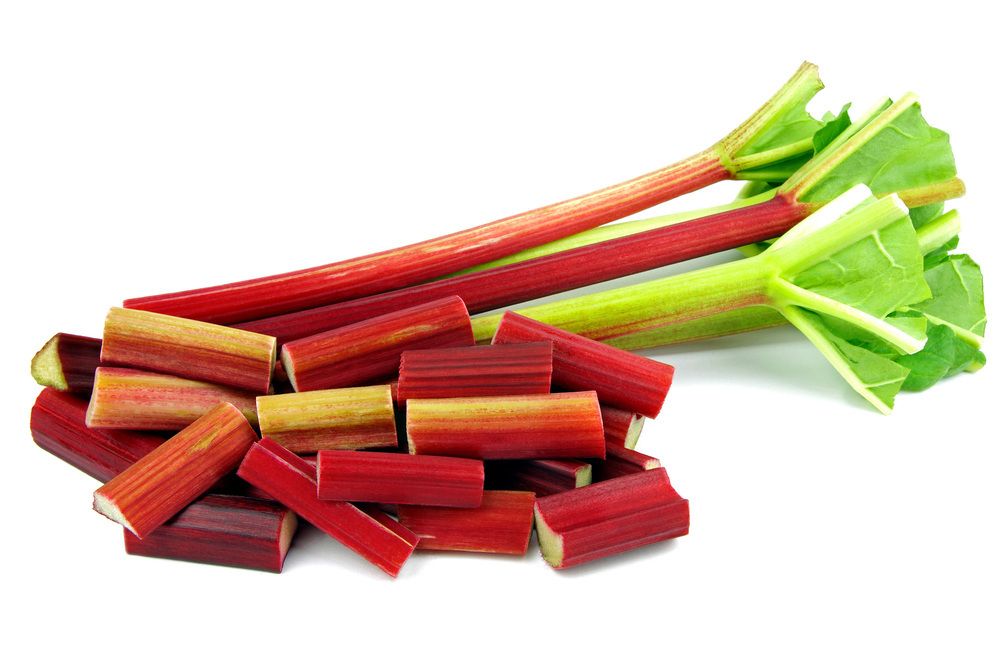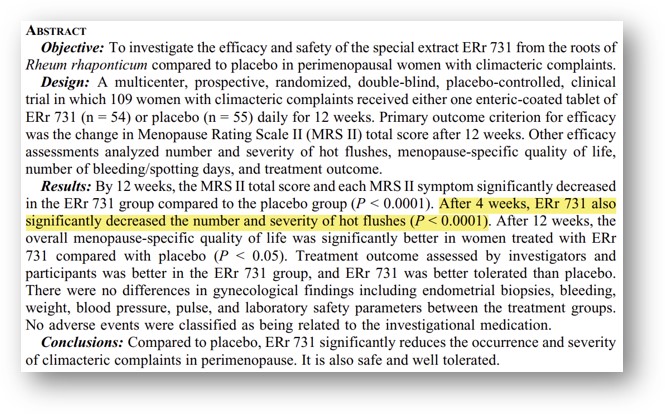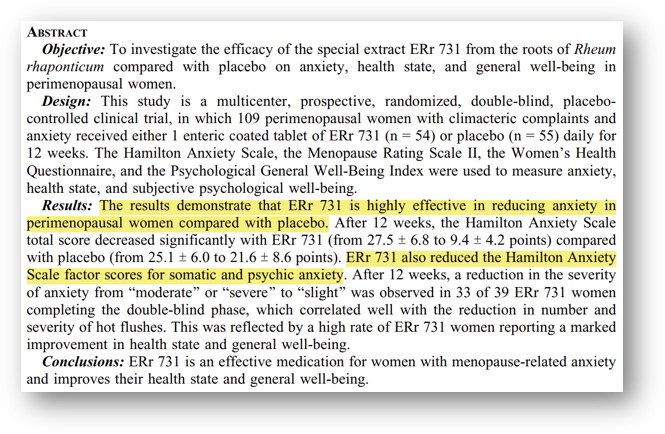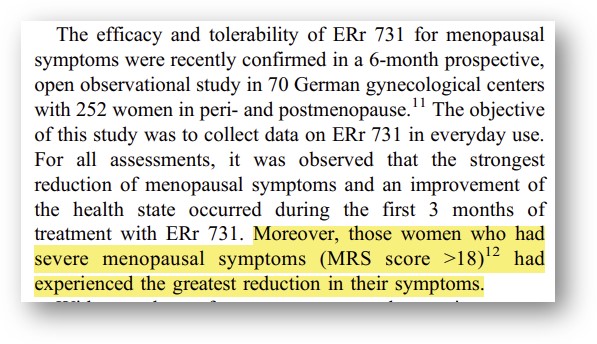hot flashes2. Improves
depression-related markers (HAMA)

Hello. I'm a pharmacist Jinny.
If you are a woman between the ages of 45~55, you have to worry about something at least once. It's called 'menopause'. In women, ovarian function decreases from the late 40s, and the secretion of female hormones naturally decreases. Many people complain of suffering from the physical and mental symptoms that appear at this time. In particular, you may have trouble sleeping due to a burning sensation in your face and upper body, night sweats, and heart palpitations.
If you have been suffering from these menopausal symptoms, you should pay attention to the new menopausal women's health ingredient that we will introduce today, 'Rhubarb Root Extract'. Rhubarb is a type of rhubarb that is often used in Chinese medicine, and the root of rhubarb has been used to treat menopause in women for a long time.
So, let's take a look at how rhubarb root extract can specifically help menopausal women's health through academic research.
Menopausal symptoms vary from person to person, but hot flashes are the most common and characteristic. Usually, a strong feeling of heat lasts for 30 seconds ~ 5 minutes, and then suddenly sweating, cold and shivering, and then disappears. This can be accompanied by feelings of helplessness and dizziness.
The reason why hot flashes are frequent during menopause is that the blood level of the female hormone estrogen drops. That's because one of the roles of estrogen is to regulate body temperature. Therefore, when estrogen decreases, the central function of regulating body temperature naturally decreases.
However, it is known that ingredients such as laponticin and deoxyrafonticin in rhubarb can activate estrogen beta receptors and alleviate menopausal symptoms. In a 2006 clinical trial on 109 women with menopausal symptoms, those who took rhubarb root extract showed a significant reduction in the number and severity of hot flashes [1].

"After four weeks, rhubarb root extract (ERr 731) significantly reduced the frequency and severity of hot flashes."
The mental symptoms of menopause are easy to conceive because they are invisible, but menopausal depression is accompanied by a feeling of lethargy and emptiness, and it can also reduce all willpower. They also have severe mood swings.
The cause of these mood swings is also a decrease in estrogen. This is because estrogen is involved in the regulation of serotonin, a neurotransmitter that regulates emotions in our brain. Therefore, during menopause, when the secretion of estrogen decreases, it is easy to feel depressed.
In this regard, in 2007, rhubarb root extract showed significant improvement in the Hamilton Anxiety Scale (HAMA)*, which is used to measure anxiety in humans [2].

"The results show that rhubarb root extract (ERr 731) is highly effective in reducing anxiety in postmenopausal women. … In addition, rhubarb root extract (ERr 731) reduced Hamilton anxiety scale factor scores for physical and mental anxiety."
The Menopause Rating Scale (MRS) is a measure of health-related quality of life that was developed in the early 1990s to measure the severity of aging symptoms and their impact on quality of life. They are divided into three categories: physical, psychological, and urinary, and each of the 11 items is scored.
For these MRS, a total score of 22 or higher is usually considered to be a condition of severe discomfort due to menopausal symptoms. According to a study published in 2009, the rhubarb root extract group with an MRS score of 34 points decreased significantly to 12.5 points [3].

"What's more, women with severe menopausal symptoms (MRS score greater than 18) had the greatest reduction in symptoms."
Today, we took a look at the results of research in academia on rhubarb root extract, a new material for menopausal women's health. If you want to get rid of menopausal symptoms as soon as possible, medical treatment should be a priority.
However, if treatment is not possible for various reasons, it is recommended to improve your lifestyle with health functional foods containing menopausal functional ingredients such as rhubarb root extract, which we introduced earlier.
So, what are some lifestyle habits that can help with menopausal symptoms?
First, you need to exercise regularly. In particular, strength training has been shown to reduce hot flashes and night sweats [4]. Aerobic exercise, such as brisk walking and stair climbing, is also effective in improving bone density [5].
In addition, eating habits are also important. It is important to eat vegetables, fish, and meat evenly. Among them, it is recommended to eat beans. This is because the phytoestrogens contained in soy act similarly to female hormones in the body.
So, I hope you have a healthy day in body and mind. It was Jinny.
[1] Heger, M., Ventskovskiy, B. M., Borzenko, I., Kneis, K. C., Rettenberger, R., Kaszkin-Bettag, M., & Heger, P. W. (2006). Efficacy and safety of a special extract of Rheum rhaponticum (ERr 731) in perimenopausal women with climacteric complaints: a 12-week randomized, double-blind, placebo-controlled trial. Menopause (New York, N.Y.), 13(5), 744–759.
[2] Kaszkin-Bettag, M., Ventskovskiy, B. M., Kravchenko, A., Rettenberger, R., Richardson, A., Heger, P. W., & Heger, M. (2007). The special extract ERr 731 of the roots of Rheum rhaponticum decreases anxiety and improves health state and general well-being in perimenopausal women. Menopause (New York, N.Y.), 14(2), 270–283.
[3] Hasper, I., Ventskovskiy, B. M., Rettenberger, R., Heger, P. W., Riley, D. S., & Kaszkin-Bettag, M. (2009). Long-term efficacy and safety of the special extract ERr 731 of Rheum rhaponticum in perimenopausal women with menopausal symptoms. Menopause (New York, N.Y.), 16(1), 117–131.
[4] Bailey, Tom G.; Cable, N. Timothy; Aziz, Nabil; Dobson, Rebecca; Sprung, Victoria S.; Low, David A.; Jones, Helen (2016). Exercise training reduces the frequency of menopausal hot flushes by improving thermoregulatory control. Menopause, 23(7), 708–718.
[5] Alghadir, Ahmad H.; Aly, Farag A.; Gabr, Sami A. (2014). Effect of Moderate Aerobic Training on Bone Metabolism Indices among Adult Humans. Pakistan Journal of Medical Sciences, 30(4), –.


![[Rhubarb Root Extract Benefits] 3 Benefits of Rhubarb, a new material for menopausal women's health](http://esther-mall.com/cdn/shop/articles/74.jpg?v=1734032365&width=480)
![[Ashwagandha Extract Benefits] From Stress, Insomnia to Anxiety, 3 Benefits of Ashwagandha Extract](http://esther-mall.com/cdn/shop/articles/73.jpg?v=1734032141&width=480)
![[Green Coffee Bean Benefits] 3 Benefits of Diet Coffee and Green Coffee Bean](http://esther-mall.com/cdn/shop/articles/75.jpg?v=1734033423&width=480)